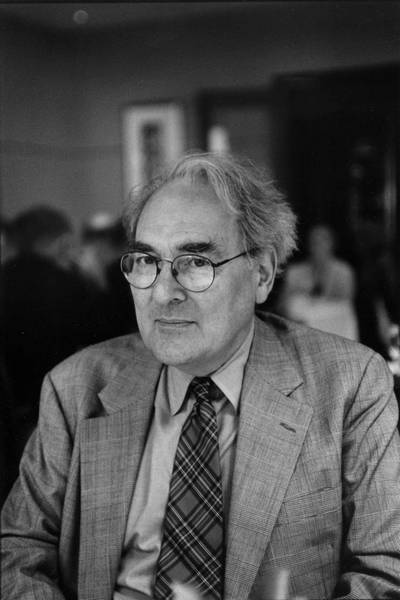Hilton Kramer (Hilton Kramer)

Kramer was born in Gloucester, Massachusetts, and was educated at Syracuse University, receiving a Bachelor’s degree in English; Columbia University; he studied literature and philosophy at Harvard University, Indiana University, and the New School for Social Research. Kramer worked as the editor of Arts Magazine, art critic for The Nation, and from 1965 to 1982, as chief art critic for The New York Times. He also published in the Art and Antiques Magazine and The New York Observer. Kramer’s “Media Watch” column was published weekly in The New York Post from 1993 to November 1997.
Kramer fought against leftwing political bias in art criticism, and what he perceived as the aesthetic nihilism characteristic of many 20th century working artists and art critics. The frustration with the journal’s policies led to his resignation from The New York Times in 1982. He co-founded (with Samuel Lipman) the conservative magazine The New Criterion, for which Kramer was also co-editor and publisher. He took a strongly anti-Communist stance in his 2003 review of Anne Applebaum’s Gulag: A History. In The Twilight of the Intellectuals (1999), he defended the anti-Communist views of art critic Clement Greenberg.
In 1952, Kramer took issue with a prevailing understanding of action painting as a “psychological event”. He argued that such an understanding “denied the aesthetic efficacy of painting itself and attempted to remove art from the only sphere in which it can be truly experienced, which is the aesthetic sphere”. He took issue with Pop art, Conceptual art, and Postmodern art. Kramer characterized postmodernism in the visual arts as “modernism with a sneer, a giggle, modernism without any animating faith in the nobility and pertinence of its cultural mandate”. He was incisive in his distinction between modernism and postmodernism, referring to the age of postmodernism as “this age of irony and institutionalized subversion.” He has contrasted this with ideals he found in modernism: “the discipline of truthfulness, the rigor of honesty.”
Kramer faulted the Whitney Biennial for what he saw as a preoccupation with gender and ethnic identity. He wrote that the biennials “seem to be governed by a positive hostility toward — a really visceral distaste for — anything that might conceivably engage the eye in a significant or pleasurable visual experience.” Hilton Kramer died on March 27, 2012, in Harpswell, Maine, two days after his 84th birthday from heart failure, according to his wife, Esta Kramer.
Born
- March, 25, 1928
- USA
- Gloucester, Massachusetts
Died
- March, 27, 2012
- USA
- Harpswell, Maine

